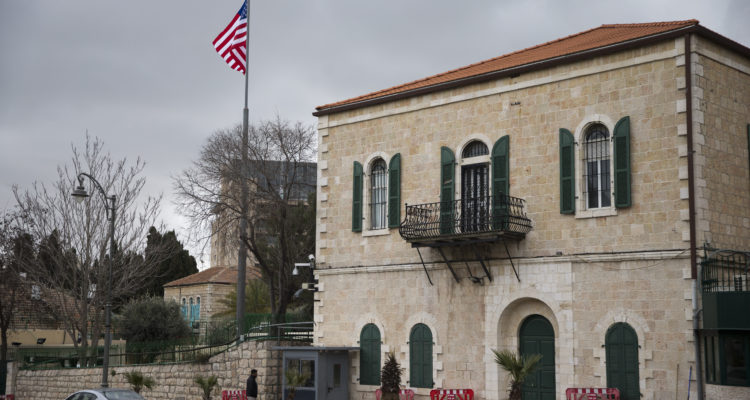Lapid says “no problem” with a consulate in Ramallah.
By David Hellerman, World Israel News
Israel’s political leadership declared on Saturday night that there was “no room” in Jerusalem for a US consulate serving the Palestinians.
At a press conference Saturday night, Prime Minister Naftali Bennett and Foreign Minister Yair Lapid were adamant in their opposition to the consulate.
“My position, which has been presented to the Americans by myself and by Foreign Minister Lapid, is that there is no place for an American consulate that serves the Palestinians in Jerusalem,” Bennett said. “We have expressed our position [to the U.S.] determinedly, quietly, without drama, and I hope it will be understood. Jerusalem is the capital of Israel alone.”
Lapid said, “If the Americans want to open a consulate in Ramallah, we have no problem with that.” However, he insisted, “sovereignty in Jerusalem belongs to one country — Israel.”
Palestinian Authority officials denounced the Israeli refusal.
“East Jerusalem is an inseparable part of the occupied Palestinian territory and is the capital of the state of Palestine. Israel, as the occupying power, does not have the right to veto the US administration’s decision,” a PA statement said.
In 2018, President Donald Trump recognized Jerusalem as Israel’s capital and moved the U.S. embassy there. Consular services for Israelis and Palestinians were shifted to the embassy. U.S. ties with the PA were effectively downgraded as the consulate’s Palestinian Affairs Unit was folded into the embassy.
The Biden administration and the Democratic party see the consulate as a key step in rebooting U.S.-Palestinian relations.
Critics say that opening a consulate for Palestinians in Jerusalem infringes on Israeli sovereignty, re-divides Jerusalem and rewards Palestinian intransigence.
In a further complication, the consulate building is located in downtown Jerusalem, in the western half of the city.
U.S Deputy Secretary of State for Management and Resources Brian McKeon conceded to the Senate Committee on Foreign Relations in October that the U.S. would need Israel’s consent and diplomatic accreditation to reopen the building as a consulate.
The Biden administration was widely believed to be waiting till after Israel passed its state budget before pressuring Bennett on the consulate. Failure to pass a budget by November 14 would have triggered snap elections, freezing American diplomacy for months.





